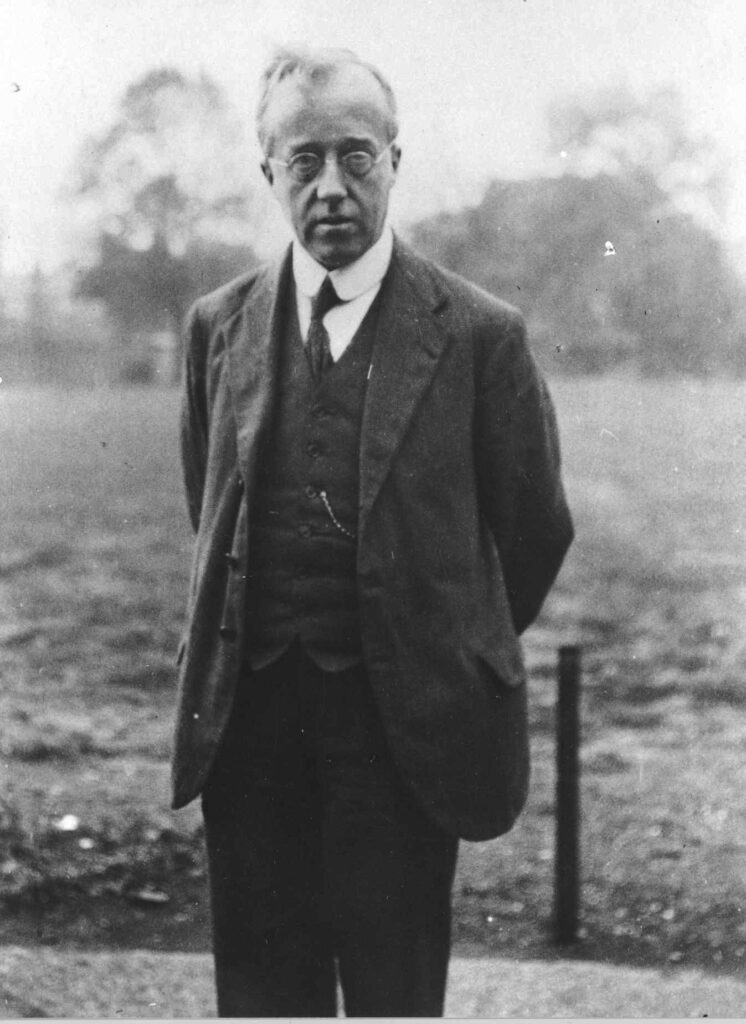 Gustav Holst (1874-1934): A Musical Visionary Who Went to the Planets and Beyond
Gustav Holst (1874-1934): A Musical Visionary Who Went to the Planets and Beyond
““Music, being identical with heaven, isn’t a thing of momentary thrills, or even hourly ones. It’s a condition of eternity.” — Gustav Holst, from “Gustav Holst, letters to W. G. Whittaker,” University of Glasgow Press, 1974.
Edited by Barry Lenson from Content Generated by the Claude AI App
Gustav Theodore Holst (1874-1934) stands as one of Britain’s most distinctive and influential composers, best known for his orchestral suite The Planets, but whose musical legacy extends far beyond this celebrated work. Born in Cheltenham, England, to a family steeped in musical tradition, Holst’s journey from a struggling young musician to a revered composer was built on personal determination and genuine artistic innovation.
Early Life and Musical Foundations
Holst’s musical heritage ran deep through his family lineage. His father, Adolph Holst, was a pianist and organist, while his grandfather had been a composer. This musical environment nurtured Gustav’s early development, though his path was not without challenges. As a child, he suffered from asthma and poor eyesight, conditions that would affect him throughout his life. Despite these obstacles, he showed remarkable musical aptitude, learning piano and later the trombone.
His formal musical education began at the Royal College of Music in London, where he studied composition under Charles Villiers Stanford. During his time there, he formed a lifelong friendship with fellow composer Ralph Vaughan Williams, a relationship that would prove mutually beneficial to both men’s artistic development. Their regular meetings to discuss and critique each other’s work became legendary in British musical circles.
Professional Development and Teaching Career
Financial necessity drove Holst to work as a trombonist in orchestras and seaside bands while developing his compositional skills. In 1905, he secured a position as music director at St. Paul’s Girls’ School in Hammersmith, London, a post he would hold for nearly three decades. This role provided him with financial stability and a conducive environment for composition. The school even built him a soundproof studio where he could work undisturbed.
Holst’s teaching extended beyond St. Paul’s to include positions at Morley College and the Royal College of Music. His pedagogical approach emphasized practical musicianship and creative expression, influencing a generation of musicians and composers. He believed deeply in making music accessible to all social classes, reflecting his humanist and political leanings.
Compositional Style and Influences
Holst’s musical language evolved considerably throughout his career. His early works showed the influence of Wagner and late Romantic traditions, but he gradually developed a more individual voice characterized by distinctive harmonies, unusual time signatures, and innovative orchestration. His interest in Hindu philosophy and Sanskrit literature profoundly influenced several compositions, including Choral Hymns from the Rig Veda.
The composer’s fascination with astrology and astronomy culminated in his masterpiece, The Planets, composed between 1914 and 1917. Each movement represents a different planet and its astrological character, from the aggressive “Mars, the Bringer of War” to the mystical “Neptune, the Mystic.” The work’s innovative orchestration, rhythmic complexity, and vivid imagery established Holst’s reputation internationally.
Major Works and Achievements
Beyond The Planets, Holst created a substantial body of work spanning multiple genres. His orchestral works often featured unconventional instruments and techniques. He was among the first composers to use the theremin and frequently employed unusual percussion instruments. His harmonic language incorporated modal scales, bitonality, and quartal harmonies, contributing to the distinctly English sound that characterized the musical renaissance of his era.
Legacy and Final Years
Health problems increasingly plagued Holst’s later years, limiting his compositional output. A fall in 1923 affected his ability to conduct, and subsequent health issues reduced his productivity. He died in London on May 25, 1934, at the age of 59.
Holst’s influence on British music extends beyond his compositions to his role as an educator and advocate for musical accessibility. His daughter, Imogen Holst, became a notable composer and musicologist, helping to preserve and promote her father’s legacy. Today, Gustav Holst is remembered not only for The Planets, but as a pioneering figure who helped establish a distinctly British compositional voice in the early twentieth century, combining technical innovation with deep humanistic values.
Exploring the Music of Gustav Holst on Classical Archives*
Orchestral Works
We recommend the following works. You’ll find excellent performances of them on Classical Archives . . .
- The Planets (suite for orchestra and chorus). Holst’s best-known work and a genuine masterpiece.
- Paul’s Suite (suite for strings). A very British, and very charming, suite of short works for string orchestra.
- Brook Green Suite (suite for strings). Three charming pieces for string orchestra.
Choral Works
- Choral Hymns from the Rig Veda (hymns for chorus and small ensemble). These fascinating works emerged from Holst’s interest in Sanskrit Vedic texts.
* Please note that to listen to the recordings cited in this newsletter, you must be a member of Classical Archives. If you are not yet a member, we invite you to join now. Free 14-day trial memberships are now available.









